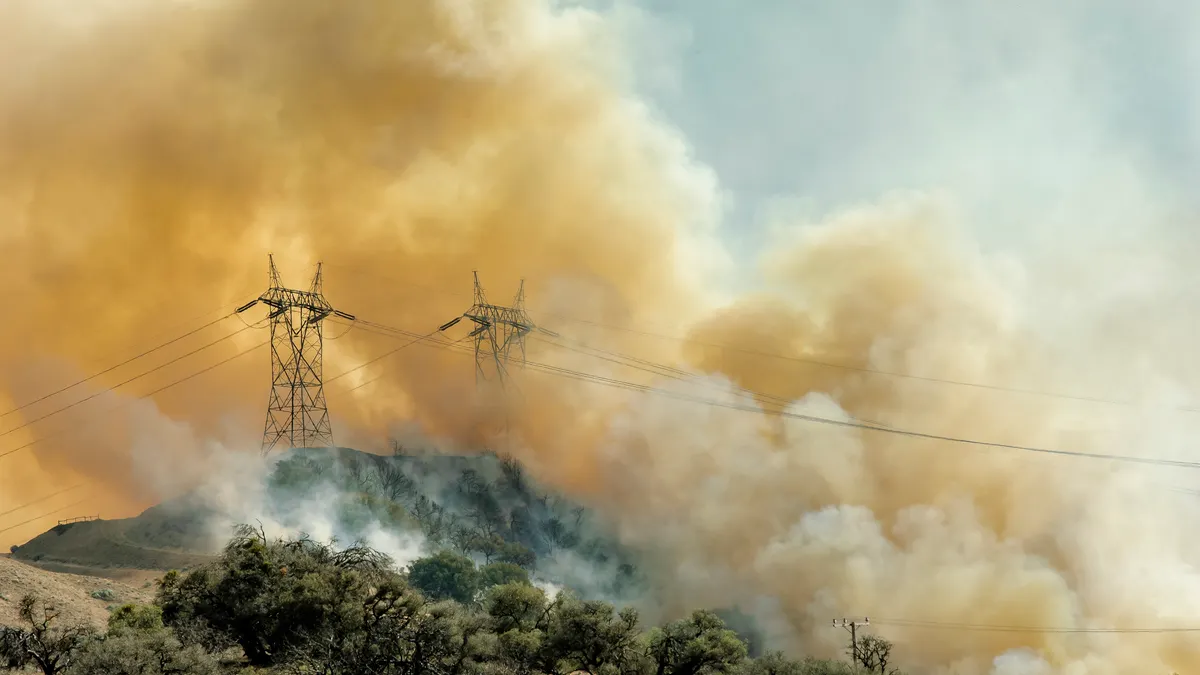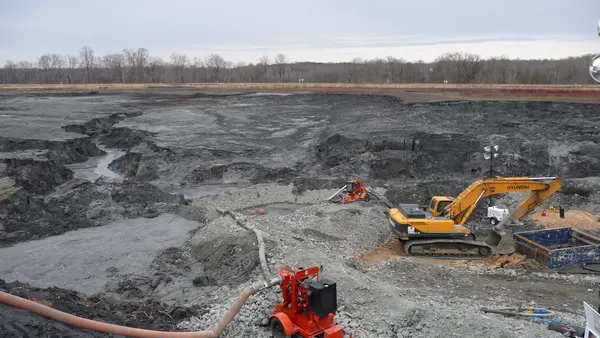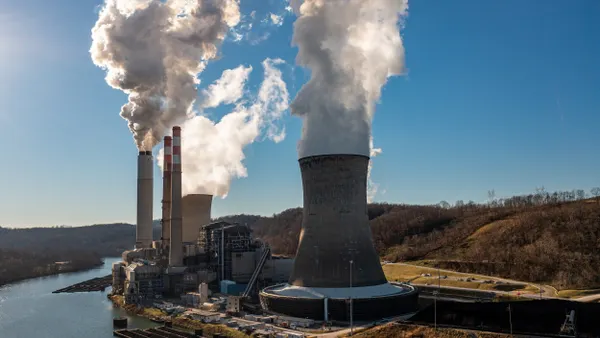Dive Brief:
- North Carolina Gov. Pat McCrory (R) signed off on a bill last Friday that requires Duke Energy to clean up coal ash pits at half of its sites without having to excavate the waste as long as the utility supplies clean drinking water to residents near the ponds by 2018, the Associated Press reports.
- The legislation represents a partial resolution to a long series of clashes between the state's lawmakers and the governor's administration on how Duke Energy should deal with its coal ash ponds, as McCrory had vetoed clean up legislation earlier this year.
- The state Department of Environmental Quality and Duke Energy both still claim that coal ash at their sites is not contaminating groundwater.
Dive Insight:
Some sort of compromise between North Carolina lawmakers and the McCrory administration over coal ash clean up in the state has eluded both sides until now. With this signed legislation, both sides have come to a degree of resolution in finding a solution to cleaning up coal ash waste while ensuring neighboring residents have access to clean water.
According to the bill, Duke Energy will be required to clean up coal ash via a strategy of "cap in place" at only seven out of fourteen of its sites. The policy would allow Duke to to dry out the watery pits and close them in place, rather than excavating them while requiring the utility to provide clean drinking water to plant neighbors by 2018. The bill also eliminates any possibility of reinstating the Coal Ash Management Commission, which was disbanded earlier this year after Gov. McCrory challenged its constitutional legality.
The previous clean up bill, Senate Bill 71 and vetoed by Gov. McCrory in June, would have reestablished the commission while requiring Duke Energy to pay for the installation of municipal water lines or filtration systems for more than 900 homes within the near vicinity of each of the company's coal ash basins. McCrory's administration and the DEQ said that the legislation would have been unconstitutional and "bad for the environment." Other critics say the bill failed to enact a deadline for the installation of water lines or filtration systems.
In a statement, Gov. McCrory said the new law "protects the environment while also protecting consumers from higher electricity prices,” reports the AP.
Citizens living in close proximity to the plant are still concerned that the law wouldn't require Duke to get rid of hazardous residue in groundwater from coal ash, which contains arsenic, chromium and other hazardous elements. Critics of the legislation also claim that the law allows for Duke Energy to avoid nearly $10 billion in costs to excavate the ash from more than 30 ponds at all 14 sites, the AP noted.
McCrory and the DEQ insist that coal ash from their sites is not contaminating groundwater. But a recent study from Duke University suggested coal ash ponds consistently taint nearby lakes, rivers, and groundwater near disposal sites and could linger for years. More research is needed to determine the magnitude and long-term environmental effects of ash ponds, the researchers warned.














